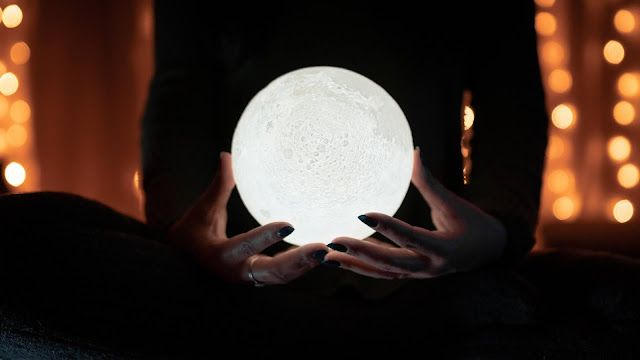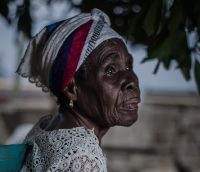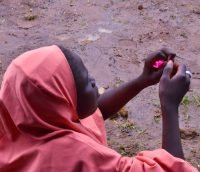 |
| Photo by Gantas Vaičiulėnas from Pexels |
As long as I can remember, I have always cared about the issues that affect Africa, Africans and people of African dissent, with special focus on how these issues affect women and children. Even as a child in primary school, I can remember expressing anger at people who treated women and children poorly and standing up for the girls in my class. It would not be far-fetched to assume I was born this way, having what can be described as a gnawing need to lend my voice to women and children’s issues.
I was probably around 10 years old when I learned about basic human rights and the government’s role in protecting them. Without meaning to, that became my Bible and code of conduct.
I started creating content from a very young age. I wrote stories and school plays that centered women and children in roles that were not usually associated with their sex or age. These stories became church dramas because for most of my teenage years, I found expression in the church. Granted, most of what I created then was quite gruff and had a diamond-in-the-rough kind of feel but a central theme shone through all my pieces: women and children were human in themselves and needed to be treated with the full respect accorded to them by their basic rights.
I remember a play I wrote that we performed in church. It started with the parents of the lead character – a young teen – finding out that she was pregnant. Rather than be judgmental, it promoted allowing yourself to be hurt if your child gets pregnant ‘out of wedlock’ but, loving (and supporting) the child regardless. It showed that children were themselves overwhelmed by the consequences of their actions and beating them or kicking them out of the house was not a fair way to handle the issue. This play connected so well with people that the way teen pregnancies were handled – a problem that was predominant in the community where the church was situated – became markedly different.
It was for this openness that I was chosen when I was about 14 years to be part of a peer-education capacity building session on complete sexuality education. This opened my mind’s eye to the Millennium Development Goals and a world bigger than the things my environment had constrained it to. I began to actively promote these goals because I was: unhappy that the world didn’t take the eradication of extreme poverty and hunger as seriously as it should; wondering what could be done to achieve universal primary education; sure I needed to actively promote the idea of gender equality and the need to empower women; broken at the rate of child and maternal mortality and wondering how I could help; hated all discriminatory acts to people living with HIV/AIDS in a world where it was okay to do so; didn’t want anyone to die from Malaria or any other disease that could easily be prevented with small lifestyle changes; and, hated that our environment was gradually becoming dirty and unsustainable as a result of poor sanitation due to reduced enforcement of communal environmental protection activities.
These issues became my issues.
They mattered to me.
And I wanted to do something about them.
As I grew from teenager to young adult, I began to refine the areas that I was interested in. While I wanted to work in the field to directly help women and children, I knew it was cost heavy and living on the poverty line myself at that time, I didn’t think there was much I could do to help these people. So, I chose a path that centered more on creating content that could cause a mind shift in the general public and change behaviors that put women in boxes marked, ‘second class citizens’. I continued to write stories and plays for church, making sure to include the women empowerment nuggets in the overall message of the Christian faith.
With the advent of social media, I found a bigger outlet for my work…especially as I was questioning faith and removing myself from the church. I began to share my views – my very gruff and many times, antagonistic views – on my social media platforms. A friend told me about blogs and the possibilities they held for massive, and maybe even global, reach. So, I learned about this new frontier of communication and started my blog: Shades of Us.
I continued to evolve as a person, finding more perspectives to human rights and seeking even more succinct ways to communicate my ideas around them. When I heard the word ‘feminist’ during Chimamanda Ngozi Adichie’s TedX Talk – We Should All Be Feminists – I knew this was the word that perfectly described exactly who I was and the issues that mattered to me.
So here I was: Ramatu Ada Ochekliye, creating content around the Sustainable Development Goals and hoping I could change the world with my words.
But, reality check. The world really doesn’t want to be changed. If the world has its way, it will continue to be patriarchal, misogynistic and abusive to women and children. It would continue to express hate against people whose sexuality is different from the accepted norm. It would continue to be intolerant of people’s rights to association, religion, belief and dignity.
This is why, my work – and the work of other feminists, human rights activists and advocates, and anyone who just believes in the basic rights of all human beings across the world – can be really tasking. Nobody tells you that it is easier to maintain the status quo, as oppressive as it is, than it is changing anything.
And because of this, many activists suffer the painful burnout that comes with wondering if their work even means anything. Oh! There are many reasons to keep fighting. But each win seems like taking only a little droplet out of the vast ocean that is patriarchy, its tools of enforcement – misogyny – and the chains of inequality that continues to repeat the cycle of abuse and dominance.
I have had to really look at my work in the last few years. A cursory look at my blog and you can tell that my fervor started to wane in 2017 and hasn’t really picked up since. I went from writing a new article almost every day to barely writing anything in months. A lot of it is because I am genuinely tired and burned out. It seems I am writing about the very same things all the time, with no little or no impact. Abuse is still the order of the day, every day.
But that is not the only reason why I am tired. There is some selfishness in this.
You see, when I started expressing my thoughts, I used to have these ‘friends’ on social media who would read my work and echo my thoughts. They would share across their timelines and ask that we treat people better. But as my thoughts became even more clearly defined, I believe many people began to be put off by my continued request to respect women and children’s rights. They didn’t understand why I was always talking about one form of abuse or the other, or why women and men should be treated equally, or why women should make their own choices, or any other direction around these issues that I talked about. I think most people assumed my fervor was youthful exuberance and that I would eventually burn out and conform to the accepted norms. When it was the opposite that seemed to be the case, I think that made them begin to ignore me…if they could not control me.
As a result, the interactions and engagement on my blog and other social media platforms began to dwindle. Add that to the changing algorithms across these social media platforms, and I barely brought in any impressions, views or engagements.
This took a big chunk out of my heart. It was at this moment that I realized that as much as I cared about these issues, I also had a complex. I sought validation from how many people connected to my work. As Beyoncé said, ‘I am sensitive about my work’. I centered myself in my work and wanted to be loved for my activism. This is fine, but it takes me back to 2016 when I had a conversation with myself. (I am pretty sure I talked about all that on the article, Seeking Validation Outside Myself.)
I asked myself, ‘would your work matter if no one was looking? If no one cared about it? If no one interacted with it? If no one engaged with it?’ I remember the enthusiasm I used in answering in the affirmative. In Sheldon Cooper’s voice, ‘oh! What a dewy-eyed mooncalf I was’.
Truth is, activism – or even advocacy – is hard, almost thankless, work. The change we can make is usually minuscule when we work as individuals and even in a group, we aren’t always assured of impactful change. What no one tells you is that activism takes a toll on your physical, mental and financial health. And while doing all these, you still have to navigate finding yourself in the world outside of your activism.
It really does take its toll on you.
I want a world where women continue to advocate for a more equal world, where we have more allies than we do enemies, and where we can advocate for causes without worrying about the adverse effects on our health and wellbeing.
But that is idealistic.
I guess having witnessed the burn out that comes from lending my voice to the causes I care about, and watching my self-worth take a nose dive because I was seeking validation outside of myself, I am ready to ask myself the question again, and answer with more realism.
‘Ramatu, would your work matter if no one was looking? If no one cared about it? If no one interacted with it? If no one engaged with it?’ And because I know there will be times when people just don’t care about my work, I am doing one better. ‘Ramatu, would your work matter when no one is looking? When no one cares about it? When no one interacts with it? When no one engages with it?’
After a very deep sigh and introspection that has taken me a few months, I would still say…yes.
Starting from me, my work matters because it is my self-expression and contribution to world. I believe this with all of me. Secondly, stories matter. Representation matters. But beyond me, the stories I tell, matter. If one woman is empowered by my story to live as she would rather than as she is expected, then I would have achieved my goal. If one child becomes more tolerant than the society they live in permit, then I would have won.
For that woman and for that child, I will continue to tell my stories. If they find me, great. If they don’t, I will rest in the fact that I contributed to making these stories available for when they seek illumination.
But, I will no longer beat myself up as I have done all this while. Yes…I will always be sensitive about my work. There are days that I may still feel like it doesn’t matter, and as a result, that I don’t matter. When that happens, I would unplug and seek a renewal of my spirit and soul until I can get back to fighting.
This is after all, a life long battle. And then some.
What do you think? Share your comments below.





